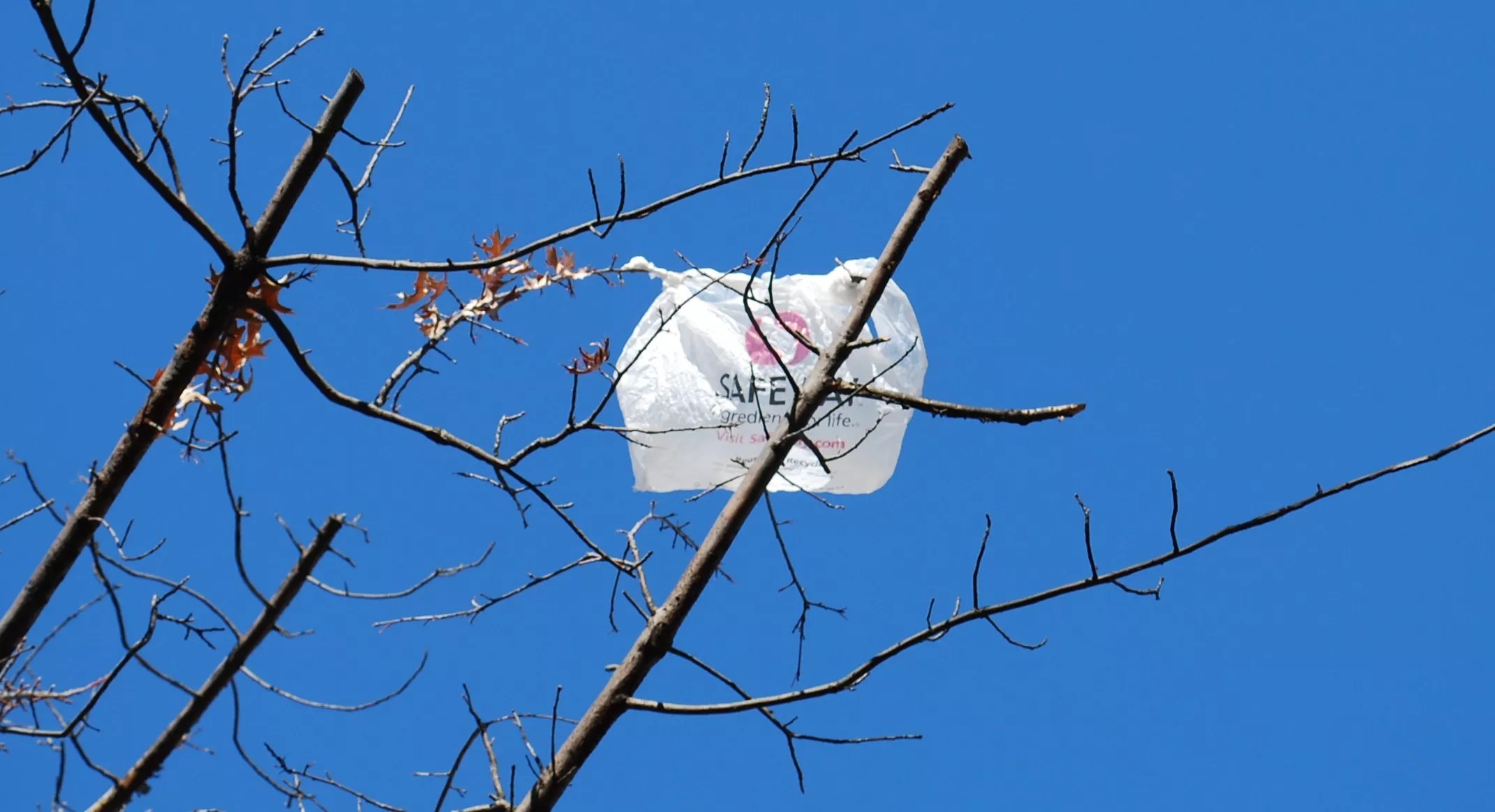
Owen Parrish/Flickr

Audio By Carbonatix
Most grocery stores in Denver give customers as many free plastic and paper bags as they need to take home their groceries. But if a new ordinance before Denver City Council passes in the coming months, shoppers would have to pay ten cents for each bag they use.
“There’s a trillion [single-use plastic bags] used worldwide every year, and their life is fifteen minutes. They’re used for about fifteen minutes. And then they end up in the waste stream. And they’re not biodegradable,” says Councilwoman Kendra Black, who is pushing the fee. “It’s just a much more sustainable practice to have a sustainable bag.” Stores would keep four cents from every bag, and the city would get six.
Black had previously considered moving forward with a full ban on plastic bags, but says there are downsides to a blanket ban. “If you ban plastic bags, then stores give free paper bags and people just switch to paper bags,” she explains. “There have been other cities that have done that, and it hasn’t been successful. The way you change behavior is to have a small fee. And that’s what all experience shows.”
The fee would only apply to bags that customers get at check-out. Bags that are used to wrap things like meat or produce would not be affected by the fee. Residents who use food stamps would be exempt from paying for bags.
If it passes council, the bag fee could take effect as early as mid-2020.
Black says that eleven councilmembers, including herself, support the ordinance; members Kevin Flynn and Chris Herndon say they’re undecided. Mayor Michael Hancock‘s office says it is still waiting to learn more details about the proposal before taking a position.
In addition to garnering near-unanimous support from city council, the proposal has buy-in from industry stakeholders. The Colorado Retail Council, which represents grocery stores, and the Colorado Wyoming Petroleum Marketers Association, which represents gas stations and convenience stores, support the ordinance. (Kroger, the company that owns King Soopers, will stop using plastic bags by 2025.)
In its letter endorsing the proposal, the Colorado Retail Council praised Boulder’s bag fee, which Black’s bill mirrors.
“We support the Boulder model and, if Denver passes it, the Denver model,” says Chris Howes, president of the Colorado Retail Council. “We’re trying everything we can to get people away from the plastics.”
Boulder enacted the ten-cent fee in 2013. Six months after the fee took effect, the city saw a nearly 70 percent reduction in the use of disposable plastic and paper bags, according to the Daily Camera.
Black notes that Denver residents use between 150 million and 250 million plastic bags per year. If local consumers lowered their disposable-bag usage by 70 percent, the city would pull in $1.8 million in fees from the 30 percent who still used disposable bags. Stores in Denver would report usage data to the city and send money to the city on a quarterly basis. A year after the fee goes into effect, the city would form a task force to analyze data and recommend any possible alterations to the ordinance.
In past years, Denver City Council has considered exploring a disposable bag ban or fee but hasn’t followed through, because such a bill could violate a state statute from 1993 that prohibits municipalities from banning certain plastics. “No unit of local government shall require or prohibit the use or sale of specific types of plastic materials or products or restrict or mandate containers, packaging, or labeling for any consumer products,” the statute reads.
But eleven municipalities across the state have banned or placed fees on plastic bags.
In 2012, the Colorado Union of Taxpayers cited TABOR in a lawsuit against the City of Aspen over a twenty-cent fee it placed on paper bags. The legal challenge failed in 2018 after the Colorado Supreme Court determined that the money collected by Aspen was a fee, not a tax.
Black says she’s been assured by state lawmakers that they will repeal the statute in the 2020 legislative session.